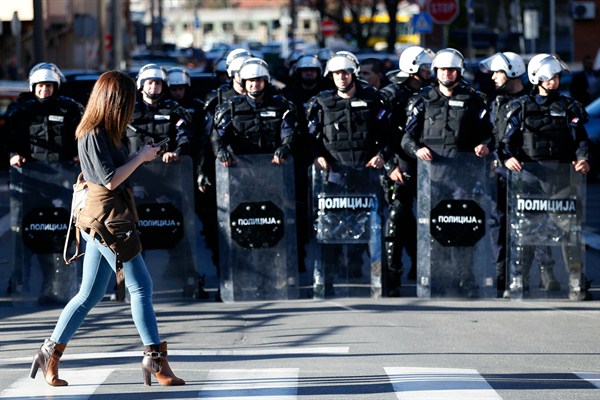Serbia’s protests have been hard to miss even if you don’t follow news and politics out of the Balkans. For more than three months, thousands of demonstrators have taken to the streets of Belgrade and other Serbian cities to demand free and fair elections, an end to violent attacks against politicians and journalists and investigations into them, and more independent and unbiased reporting in the country.
Why is that last demand so central to protesters? Serbia’s media environment has been suffering from several long-standing problems, but things took a turn for the worse after President Aleksandar Vucic and his Serbian Progressive Party, or SNS, came to power in 2012. As Vucic has dominated Serbia’s political field—the SNS has won two snap elections since 2012 and is riding high in the polls, with support of more than 50 percent—he has asserted tighter control over the media and the political messages carried on airwaves.
Much of this control lies with the public broadcaster, RTS, whose coverage has been unabashedly supportive of the government. It has drawn the ire of protesters, and that anger escalated Saturday night, when they stormed the headquarters of RTS in Belgrade. The office has been a frequent stop for the weekly demonstrations in the capital. Television is still the most popular medium in Serbia, and RTS is the most-watched channel, with an audience share of more than 20 percent. Together with the privately owned TV Pink and two other private channels, Prva and O2, that were recently acquired by a businessman with close ties to the ruling SNS, government-friendly channels have a market share upwards of 50 percent.

